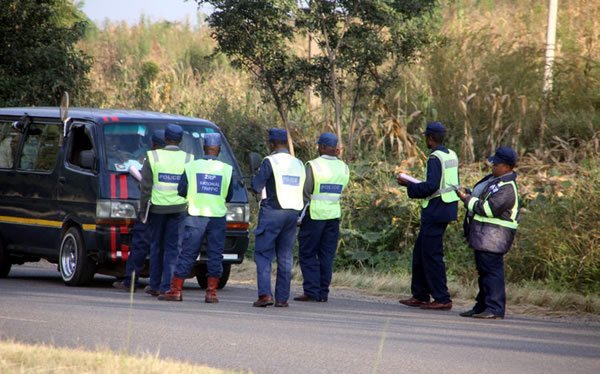Everyone is worried. For business, it never rains but it pours. Right now, they are busy navigating through the murky waters of foreign currency problems and while the dust is yet to settle on that one, police roadblocks are being reintroduced. It came as a huge relief when the roadblocks were removed about a year ago after intense lobbying from various quarters had seemed to be falling on deaf ears. A year later, history is about to repeat itself.
Why now?
Transport and Infrastructure Development Minister, Engineer Joel Biggie Matiza has done well to justify this round of roadblocks saying, “We’ve had quite a number of accidents in the past month and we are taking measures to try and reduce the carnage on our highways…there will be many roadblocks whose purpose apart from enforcing traffic rules and regulations, will be to educate motorists on the importance of safe driving.” It is true that the month of November was a dark one in terms of road traffic accidents. The national disaster along the Harare – Mutare highway which killed more than 40 people could have been avoided of road safety rules and regulations had been observed. Unfortunately, they were not and government now wants the police roadblocks to help curtail such negligence. The festive season is also upon us and increased police presence on the roads seems to be the norm the world over. Only time will tell if the police will carry out their mandate effectively without hampering businesses.
Business is sceptical
As far back as 2015, economists had started pleading with government to reduce the number of roadblocks citing their perceived negative effects on trade relations and investment. At the time, you could see three or more roadblocks within a distance of 100km on the highway. In the cities and towns, there were roadblocks almost every 5 to 10km. Clearly this was abnormal. Those against roadblocks were asking government to take a leaf from Tanzania and Kenya who had drastically reduced the number of roadblocks after suffering negative effects on business. At the height of the problem, there were claims that traffic officers had been given targets pertaining to the amount of money that each roadblock had to collect from motorists. Those claims have never been fully explored, but they seem to be adding onto current fears that the return of roadblocks will not be good for business. In towns combis had become accustomed to leaving a few dollars at the roadblock, no questions asked.
Threat to ease of doing business
Too many roadblocks are likely to cause delays in the movement of goods and services. For businesses involved in perishable goods, the danger is that goods will go stale before reaching their destination. This will result in losses. Previously, drivers have resorted to carrying extra money for bribes to circumvent traffic fines and delays. In simple terms, this is corruption. Such a scenario flies in the face of government efforts to improve the ease of doing business in the country. Imagine bread arriving late in the afternoon when it is expected to be on the shelves in time for breakfast. No investor wants to lose their money due to delays. Time is money, the saying goes.
Killing tourism
For players in the tourism industry, too many roadblocks kill business. Tourists have complained about a 3 hour journey becoming as long as 5 or 6 hours, the additional time being spent at the roadblocks dealing with the traffic cops. In the past, the traffic officers manning the road blocks have been accused of being needlessly aggressive and hostile. The first impression created by such policing is that the country is somewhat in a state of panic and unrest. And first impressions last. One hopes that this time around, officers will be fully trained and equipped to deal courteously with motorists, educating them rather than rushing to punish them.
Spot checks in fuel queues
Although police presence on the country’s major highways is still somewhat subdued, there have already been reports on social media that the police and members of the Vehicle Inspection Department (VID) are targeting motorists queuing to fill up their tanks. They are said to be checking on vehicle registrations and requesting drivers to produce their licences. Surely, it looks like government is in the business of bleeding businesses. While ensuring that drivers are properly licenced and vehicle registrations are up to date is a noble cause, the timing of such an operation is not the best. The approach looks more punitive than corrective and better ways to check on compliance need to be devised.
New approach needed
Government has already introduced what appear to be deterrent fines going up to $700 for various traffic offences. If they are to infest the roads again, the approach needs to be refined. Spot fines were already a contentious issue before the police disappeared last year. This needs to be addressed once and for all. Not everyone can afford to pay their fine there and then, thanks to the declining economy that we find ourselves in. Expecting all vehicles to have the required reflective strip, serviceable fire extinguisher and other requirements seems unfair for someone whose car is not registered in Zimbabwe. Chances are that they are not aware of this requirement. In short, if the police are to increase their presence on our highways, this must not be at the expense of motorists convenience.







![Tawanda Nyambirai [Entrepreneur Profile]](https://startupbiz.co.zw/wp-content/uploads/2021/02/Tawanda-Nyambirai-440x264.jpg)
